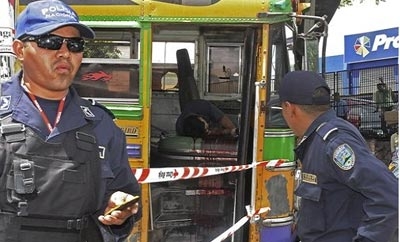Honduran criminal gangs including the Barrio 18 have reportedly imposed a curfew on residents in certain sectors of the country’s capital, illustrating the authorities’ failure to provide security.
Residents of several neighborhoods in west Tegucigalpa have complained that the Barrio 18 gang, and emerging local gang the Chirizos, are forcing residents to stay off the streets from the early evening, reported La Prensa.
“At 7 p.m. we want to see these businesses closed and the people in their homes,” stated announcements posted around the area. Stores, transport, and even churches have been forced to shut down early because of the threats, according to reports.
Police spokesperson Hector Ivan Mejia said that the police had not received complaints from residents regarding the curfew, though he admitted that this could be because locals were afraid to speak out.
Residents said that two police stations formerly located in the area had been closed for years, reported El Heraldo.
InSight Crime Analysis
Barrio 18 is one of the largest street gangs in Latin America, with operations stretching as far as Canada, and often controls operations like extortion, drug dealing, and contract killings in areas under its territory. It is currently reported to be battling the Chirizos for control of extortion rackets in west Tegucigalpa.
In Honduras, high government debt has led to a decline in state services, with the authorities even being forced to turn off security cameras in Tegucigalpa in late January because it was unable to pay the company that runs them. Given this situation, the ability of street gangs to control city neighborhoods is not surprising.
In 2012, Honduras saw its highest number of homicides on record, with over 7,000 killings. There are many factors behind Honduras’ deteriorating security situation, including the presence of gangs like Barrio 18, the country’s increasing importance as a transit point in the international drug trade, weak institutions, endemic corruption and lax gun control laws.

